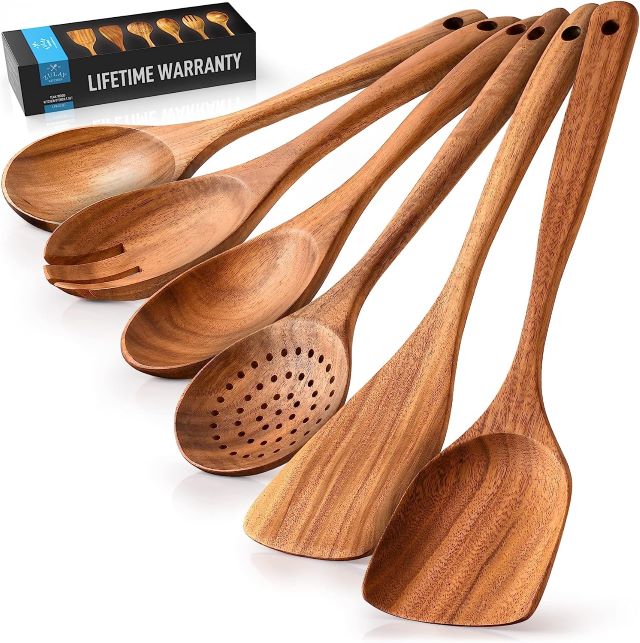Boiling wooden spoons can be a controversial topic in the culinary world. There are emails and videos going around the internets showing people boiling spoons to show all the “toxins” that come out of the wood. Wood is a porous material, and exposing it to water and high temperatures can potentially damage or warp the spoons. As a general rule, it is not recommended to boil wooden spoons unless absolutely necessary. The heat and moisture can cause the wood to expand and contract, leading to cracks or warping.
If you find yourself in a situation where you believe boiling your wooden spoons is necessary, take certain precautions. Keep the boiling time to a minimum, typically no more than a few minutes. This brief exposure to boiling water can help sanitize the spoons by killing off bacteria and germs. However, be mindful of not exceeding the recommended boiling time, as prolonged exposure can weaken the wood’s structure.
After boiling, it is crucial to thoroughly dry the wooden spoons before using or storing them. Moisture can seep into the wood fibers, leading to swelling, warping, and the potential growth of mold or mildew. Place the spoons in a well-ventilated area and allow them to air dry completely. Once dry, you can consider applying a food-safe oil, such as mineral oil or beeswax, to help maintain the wood’s integrity and prevent drying out. Regularly oiling the wooden spoons can also help preserve their appearance and extend their lifespan. And if you are worried about “toxins” in your wooden spoons then just buy some new ones like these which are made of resilient teak wood and have a lifetime warranty…

